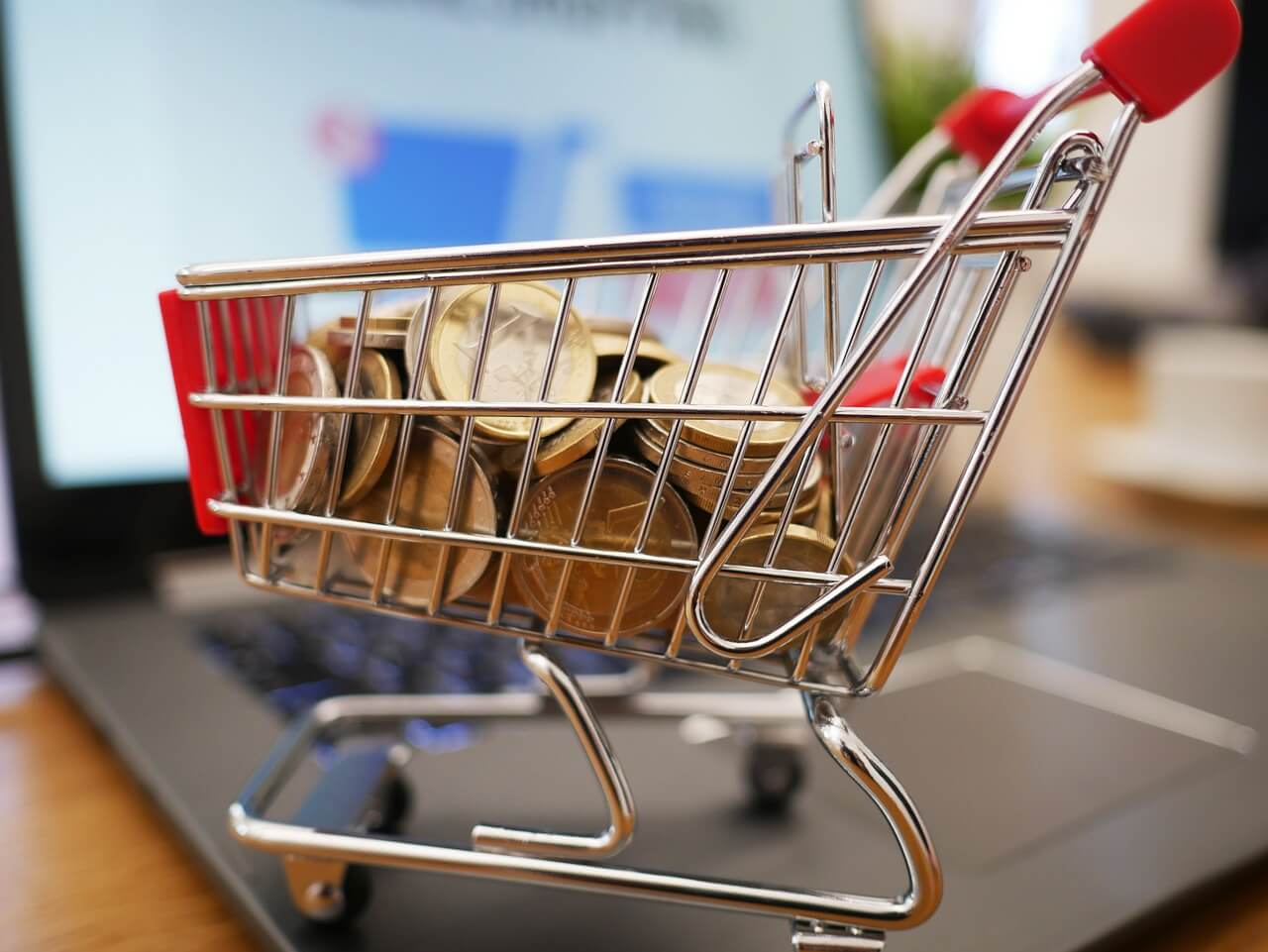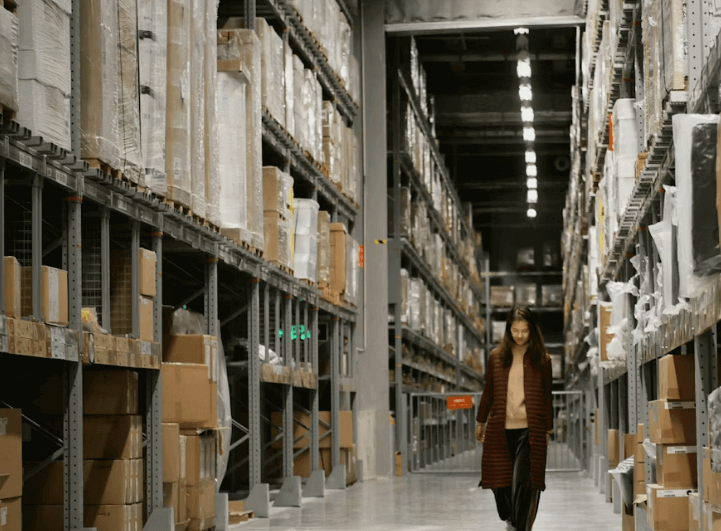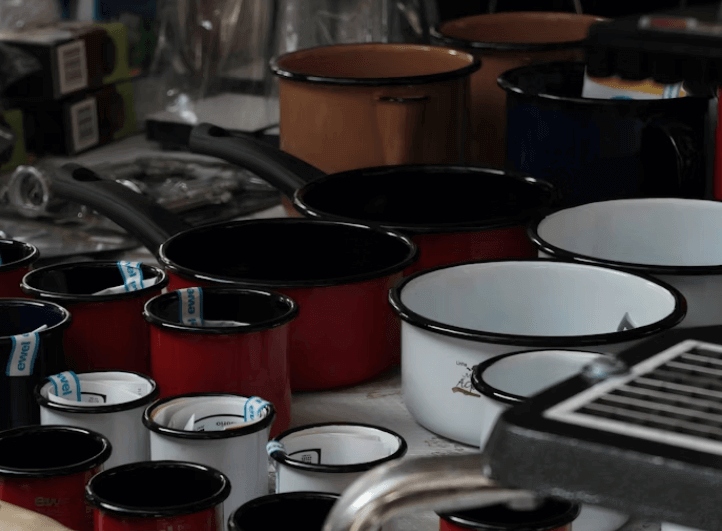
Want to build a real e-commerce brand and live a more flexible life? Many dream of this, but they get stuck. The logistics of warehousing, shipping, and customer service feel overwhelming.
But what if you could build a brand that customers trust, without ever touching a box? The opportunity is real. Recent 2025 data shows that third-party sellers account for over 61% of all units sold on Amazon. According to Jungle Scout, 54% of Amazon sellers utilize the private label model.
This is the power of the Amazon FBA private label model. It's a game-changer that lets you build your own brand while Fulfillment by Amazon (FBA) does all the heavy lifting. This guide will show you how.
What is Amazon FBA Private Label?
Amazon FBA private label is an effective business strategy. It combines two key ideas: you build your own brand, and you let Amazon do all the heavy lifting.
Let's break it down into its two parts.
• Private Label: This is the brand-building part. You find a great, generic product from a manufacturer and then create your own brand for it with a unique logo, name, and packaging.
• FBA (Fulfillment by Amazon): With FBA, you don't need a warehouse. When you ship your items to Amazon, they handle all aspects of selection, packing, shipping, customer support, and returns.
When you put them together, Amazon FBA private label becomes the best way to start. You can focus on creative work, such as marketing, while Amazon handles the heavy lifting. You're not just a reseller; you're a brand owner.
Amazon FBA vs. Private Label
Beginners often confuse these two terms. It's essential to recognize that they are not competing ideas. Instead, they are two different things that work together perfectly.
• FBA is a method where Amazon ships your orders directly to customers. The alternative, FBM, means you must ship everything yourself.
• Private Label is a business model. It's what you sell. You are selling your own branded products.
This guide focuses on the most powerful way to grow: using the Private Label model with the FBA fulfillment method.
Amazon FBA Private Label vs. Wholesale
As a new seller, you will also be introduced to the "wholesale" model. Here's a clear comparison to help you understand the difference.
Feature | Amazon FBA Private Label | Amazon FBA Wholesale |
What You Sell | Your own brand of products. | Other companies' established brands. |
Profit Margins | High. Often, 30-50%, as you control the entire brand. | Low. Typically, 8-15%, as you are a reseller. |
Control | Full Control. You set the price, branding, and marketing. | Low Control. You must adhere to the brand's rules and pricing guidelines. |
Competition | You compete on the quality of your product and its brand. | You compete for the "Buy Box" against other resellers. |
Upfront Work | High. You must conduct product research, develop branding, and find a suitable manufacturer. | Medium. You must find brands that will approve you as a reseller. |
Long-Term Asset | Yes. You are building a brand that can be sold for a large sum. | No. You are building a resale business, not a sellable brand. |
The verdict is simple: Wholesale is for resellers. Amazon FBA private label is for brand builders. If your goal is to build a real, valuable asset, this is the clear choice.
Amazon FBA Private Label Course
Starting an Amazon FBA private label can be overwhelming due to the amount of information to learn at once. You need to master five skills, from research to branding. This is why a good Amazon FBA private label course is so helpful. Assisting you in avoiding costly errors, such as choosing an unreliable item or wasting money on ineffective advertisements, can save you thousands.
When you are looking for the right course, make sure it checks these boxes:
• It's Up-to-Date: Amazon's rules change fast. A course from a year ago is already outdated. You need current information.
• It Focuses on Fundamentals: A great course must have expert sections on the two most important skills: product research and PPC ads.
• It's Community-Based: A private group (like on Facebook) is priceless. It's a place to ask questions and get real-time help.
• It's Realistic: Avoid any "guru" who promises fast cash. This is a real business that takes hard work. A good course is honest.
While free resources are a fantastic starting point, a paid course provides a complete, step-by-step roadmap. It's an investment in your success, guiding you from launch to profit.

How to Do Amazon FBA Private Label Step by Step
Ready to build your own brand? Starting an Amazon FBA private label business is a clear path to success, but it takes a proven plan. Here is the 7-step process that takes your idea from a simple thought to a real, launched product.
Step 1: Set Up Your Business Foundation
Step 2: Find Your Product Niche
Step 3: Master Product Research
Step 4: Find & Source from Private Label Manufacturers
Step 5: Create Your Brand & Packaging
Step 6: Build Your Amazon Listing
Step 7: Launch Your Product
Let's dive into the most critical Amazon FBA private label requirements to get you started:
What is an Amazon FBA Private Label Business?
Before considering private label products, it is essential to establish a solid foundation. This is the legal and technical setup for your business. It protects you, looks professional, and keeps your money organized from the start.
• Choose a Business Structure: An LLC (Limited Liability Company) is the smartest choice. It creates a legal barrier between your personal assets, such as your house, and your business debts.
• Get Your Business Basics: Never mix your personal and business money. Obtain a company credit card and open a new company bank account after your LLC is set up.
• Create Your Amazon Seller Account: You have to create a Seller Central Professional Seller Account. It costs USD 39.99 per month, but it's essential.
With your LLC, bank account, and Seller Central access, you're officially in business. Now, the fun part begins.
How to Start an Amazon FBA Private Label Business
With your foundation in place, you're ready to find a suitable product and a suitable partner. This step involves identifying a specific customer and a reliable manufacturer who can bring your product to life.
• Find Your Niche: Don't sell "kitchen products"; you'll get lost in the crowd. Get specific. For example, sell "non-slip bamboo cutting boards for small kitchens." A narrow niche cuts down competition.
• Source Your Product: Find private label manufacturers on Alibaba, a huge directory of global suppliers. You can also look at ThomasNet or use the Jungle Scout Supplier Database.
• Order and Test Samples: Never skip this. Contact 5-10 suppliers and order samples from your top 3-5 preferred suppliers. You must hold the product, test it, and even try to break it.
• Negotiate and Place Your First Order: Talk to your chosen supplier about price, "Minimum Order Quantity" (MOQ), and production time. Keep your first order small, around 300-500 units, to test the market and gauge demand.
How to Do Amazon FBA Private Label Product Research
This is the most important step. Your success or failure is decided here. The goal of Amazon FBA private label product research is simple: find a product with high demand and low competition.
Here's what to look for in a great first product:
• Price: It should sell for USD 25 - USD 75. This is the sweet spot. It's high enough for a good profit, but not so costly that you need a huge budget to start.
• Size & Weight: Keep it small and light. This keeps your Amazon FBA (shipping and storage) fees low. Avoid anything big, bulky, or heavy for your first product.
• Simplicity: Opt for electronics or products with fewer moving parts. A basic product is less likely to break or receive negative reviews, and it is also easier to manufacture.
• Demand: Utilize a research tool to verify the numbers. You want to see that the product is already getting at least 300-500 sales per month.
• Competition: If top sellers have thousands of reviews, it's too hard to compete. Look for products where the main sellers have fewer than 200-300 reviews. This gives you a real chance.
The real secret is finding a problem. You must listen to customers. Go to your top competitors' listings and read all their 1-star, 2-star, and 3-star reviews. These bad customer reviews are a goldmine.
This is called Voice of the Customer (VOC) analysis. You use your competitors' mistakes to build a better product. Reading 500 reviews by hand is slow, and you will miss patterns. A tool like VOC Insight automates this work. It analyzes thousands of reviews in seconds, spotting the exact problems for you.
Now you can tell your manufacturer, "I need this product, but with a reinforced handle." You have just developed a 5-star product, allowing you to charge a higher price and leave your competition behind.
Understanding and using this customer data is your biggest advantage. Tools like VOC Insight help you analyze this data at scale. This way, you make smart decisions, not just guess.
How Do You Brand, Build, and Launch a Product?
It's time to launch it and transform it into a legitimate brand. Here's where your Amazon FBA private label business really takes off.
• Create Your Brand & Packaging: It should have a polished appearance and persuade customers to buy it.
• Build Your Amazon Listing: To persuade customers, you need excellent photographs, a catchy headline, and compelling highlights.
• Launch Your Product: To make your first sales, utilize Amazon PPC (Pay-Per-Click) advertising.
You've now completed the entire process, from creating your LLC to starting your first advertising campaign. This is a proven and repeatable method for producing a valuable, long-lasting brand.

Amazon FBA Private Label Product Ideas 2025
Although you will need to conduct your own research, it may be helpful to have a starting point. Based on current consumer patterns, these are the five top ideas for 2025:
• Eco-Friendly & Sustainable Products: To reduce waste, consider reusable kitchen supplies such as silicone bags, beeswax wraps, or bamboo products made without plastic.
• Pet Care: People are willing to spend money on their pets. Seek out specialty products, such as eco-friendly toys or orthopedic beds.
• Home & Kitchen: This popular category is crowded, so you must find a niche. Sell a "cheese-specific knife set" instead of "knives."
• At-Home Health & Wellness: Self-care is a widespread and enduring trend. Consider items such as premium yoga mats, exercise bands, or massage tools for use at home.
• Hobby & Craft Kits: DIY kits are gaining popularity as people seek enjoyable, non-digital activities. Think about kits to make ceramics, candles, or sourdough at home.
Recall that a list is only the start. Using facts to support your idea is the key to real success. Ensure your idea is a successful Amazon FBA private label story before you begin by utilizing customer voice research and Amazon's tools.
Conclusion
The Amazon FBA private label for beginners is not a fast route to financial success. It's a real roadmap for creating a valuable, long-lasting business. You get to create a brand from scratch, while Amazon handles all the tough logistics for you.
Success here isn't about luck. It comes from your commitment to using data, your focus on serving customers, and your ability to create a product that's just a little better than the competition.
The path is clear. Stop just dreaming about it. Use the steps in this guide to begin your product research today.
FAQs
What is Amazon FBA private label?
With Amazon FBA private label, you create your very own brand of product. Then, you let Amazon's huge fulfillment network (FBA) handle all the storage, shipping, and customer service for you. In short, you get to build the fun parts of the brand, while Amazon does the heavy lifting.
Is Amazon's private label still profitable?
Yes, but it's more competitive than ever. In 2025, profit comes from great product research, not just reselling. Industry reports show that over half of all private label sellers have profit margins above 20%. Success now depends on making smart, data-driven decisions and building a genuine brand.
What are the 4 types of private labels?
In the retail world, there are four main types. They range from basic, no-name generics and copycat brands that resemble famous ones, to high-quality, premium store brands, such as Costco's Kirkland Signature. The last type is value innovators, which offer something completely new and unique.
Is private label worth it?
Yes, it is absolutely worth it if you want to build a real, sellable asset for the future. Private labeling offers you complete control over your brand, price, and marketing, even though other models, like wholesale, can be quicker to launch. Higher profit margins are the eventual result of this control.



